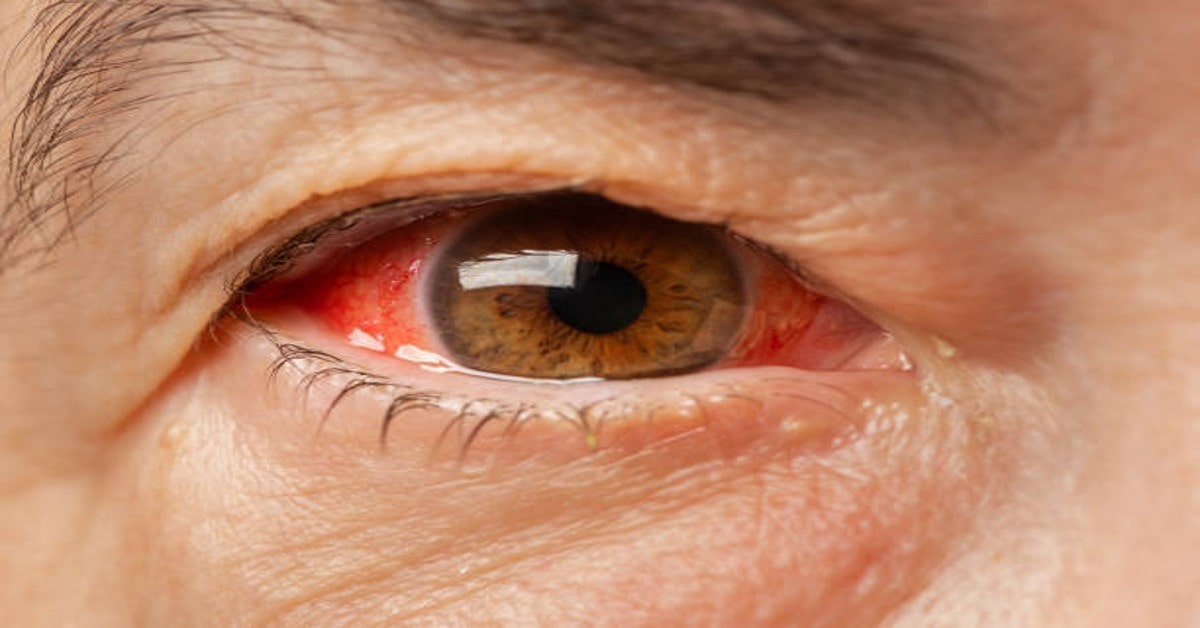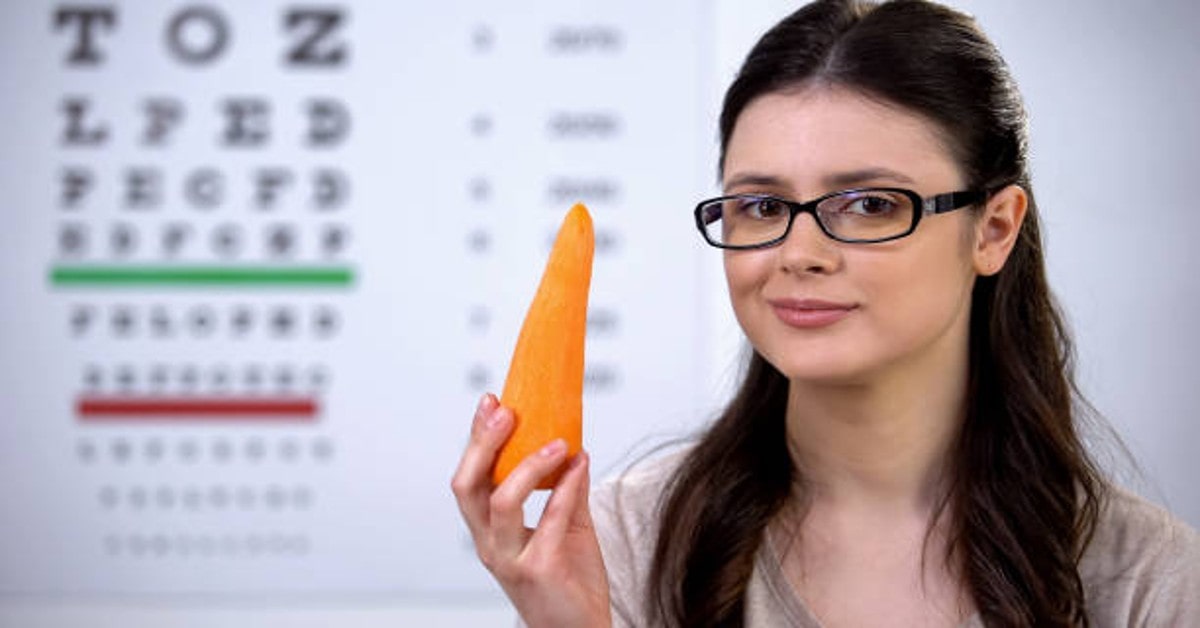Blurred vision is a common problem that affects many people, and it can be caused by various factors, including age, health conditions, and injuries.
In this blog post, we will discuss the causes of blurred vision and the available blurred vision treatment. We will also provide some eye health tips.
Blurred vision is a common condition that affects many people. It refers to a loss of sharpness or clarity in vision, making objects appear fuzzy or out of focus. Blurred vision can occur in one or both eyes and can be a temporary or permanent condition.
Watch This Video For Miracle Complete Vision For Blurred Vision Treatment

Causes of Blurred Vision
Blurred vision can be caused by several factors, including:
-
Refractive Errors: This is the most common cause of blurred vision. Refractive errors occur when the shape of the eye prevents light from focusing correctly on the retina. Common refractive errors include nearsightedness, farsightedness, and astigmatism.
-
Cataracts: Cataracts are cloudy areas that form in the lens of the eye, causing blurry vision. Cataracts are more common in older adults, but they can also occur in younger people.
-
Age-Related Macular Degeneration (AMD): AMD is a condition that affects the macula, the part of the retina responsible for sharp, central vision. AMD can cause blurred vision or a blind spot in the center of the visual field.
-
Glaucoma: Glaucoma is a group of eye conditions that damage the optic nerve, which can cause vision loss or blindness. In some cases, glaucoma can cause blurred vision.

-
Diabetic Retinopathy: Diabetic retinopathy is a complication of diabetes that can cause damage to the blood vessels in the retina. This can lead to blurred vision, as well as other vision problems.
In addition, certain medical conditions, such as diabetes and high blood pressure, can cause blurred vision. Medications, such as antihistamines and antidepressants, can also cause blurred vision as a side effect.
If you experience blurred vision, it is important you watch this video presentation right away. The doctor will perform an eye exam to determine the cause of the blurred vision and develop a blurred vision treatment plan.
Blurred vision treatment depends on the underlying cause. In some cases, a change in prescription for glasses or contact lenses may be necessary. In other cases, medication or surgery may be required.
Blurred Vision Treatment
The treatment for blurred vision depends on the underlying cause of the problem. Here are some of the treatments that may be recommended:
-
Eyeglasses or Contact Lenses: If the cause of blurred vision is a refractive error, eyeglasses or contact lenses can help to correct the problem.
-
Surgery: In some cases, surgery may be necessary to correct the underlying problem causing blurred vision. For example, cataract surgery can remove the cloudy lens and replace it with an artificial one.
-
Medications: In some cases, medications may be prescribed to treat the underlying condition causing blurred vision. For example, medication can be used to treat glaucoma or diabetic retinopathy.
-
Lifestyle Changes: Making lifestyle changes, such as quitting smoking or managing diabetes, can help to prevent or manage certain conditions that can cause blurred vision.
Eye Health Tips For Blurred Vision Treatment
Maintaining good eye health is important to prevent or act as blurred vision treatment. Here are some tips to help keep your eyes healthy:
-
Get Regular Eye Exams: Regular eye exams can help to detect and treat problems before they become serious. It is recommended that adults get a comprehensive eye exam every one to two years, depending on their age and risk factors.
-
Protect Your Eyes: Wear protective eyewear when playing sports or doing activities that could cause eye injuries. Wear sunglasses that block 99% to 100% of UVA and UVB radiation when outside.
-
Take Breaks: If you spend a lot of time on the computer or reading, take breaks to rest your eyes. Follow the 20-20-20 rule: every 20 minutes, take a 20-second break and look at something 20 feet away.
-
Eat a Healthy Diet: A healthy diet that includes fruits, vegetables, and omega-3 fatty acids can help to keep your eyes healthy. Foods that are good for eye health include leafy green vegetables, citrus fruits, and oily fish.
-
Manage Health Conditions: Manage health conditions, such as diabetes and high blood pressure, to prevent or manage conditions that can cause blurred vision.
READ ALSO – Losing Weight Eating : How to Do It Right Way For Best Result
Ways to Improve Eyesight
Good eyesight is essential for daily activities such as reading, driving, and working. Here are some ways to improve your eyesight and help with blurred vision treatment:
-
Practice Eye Exercises: Regular eye exercises can help to strengthen the muscles in your eyes, improve focus, and reduce eye strain. Eye exercises can include focusing on distant objects, moving your eyes in different directions, and blinking regularly.
-
Get Adequate Sleep: Getting enough sleep is essential for maintaining good eye health. Lack of sleep can cause eye strain, dry eyes, and blurred vision. Aim for 7-8 hours of sleep per night.
-
Eat a Healthy Diet: A diet rich in fruits, vegetables, and omega-3 fatty acids can help to improve eye health. Foods that are good for eye health include leafy green vegetables, citrus fruits, berries, nuts, and fish.
-
Stay Hydrated: Dehydration can cause dry eyes and eye strain. Aim to drink at least 8 glasses of water per day to stay hydrated.
-
Protect Your Eyes from UV Rays: Prolonged exposure to UV rays can increase the risk of cataracts and other eye conditions. Wear sunglasses that block 99% to 100% of UVA and UVB radiation when outside.
-
Quit Smoking: Smoking can increase the risk of several eye conditions, including cataracts and AMD. Quitting smoking can help to improve overall eye health.
-
Use Proper Lighting: Using proper lighting when reading or doing other visually intensive activities can reduce eye strain and improve focus. Avoid reading in dim light or in bright sunlight.
-
Manage Health Conditions: Certain health conditions, such as diabetes and high blood pressure, can increase the risk of eye problems. Managing these conditions can help to improve eye health.
-
Take Breaks from Screens: Prolonged use of electronic devices such as computers, smartphones, and tablets can cause eye strain and blurred vision. Take frequent breaks and follow the 20-20-20 rule to rest your eyes.
-
Consider Eye Supplements: Some studies suggest that certain supplements, such as lutein and zeaxanthin, can help to improve eye health. Talk to your doctor before taking any supplements.
Ways To Improve Eye Sight Naturally
There are several natural ways to improve eyesight. Here are some additional ways to improve eyesight naturally:
-
Palming: Palming is a simple technique that can help to reduce eye strain and promote relaxation. Rub your hands together to generate heat, then place your palms over your closed eyes. Relax and breathe deeply for several minutes.
-
Eye Massage: Massaging your eyes can help to improve blood circulation and reduce tension. Use your fingertips to gently massage the area around your eyes in circular motions.
-
Eye Yoga: Eye yoga is a series of exercises that can help to improve eye health and reduce eye strain. This can include exercises such as focusing on distant objects, moving your eyes in different directions, and blinking regularly.
-
Aloe Vera: Aloe vera contains vitamins and antioxidants that can help to improve eye health. Apply a small amount of aloe vera gel to your closed eyes and leave on for 15-20 minutes, then rinse with cool water.
-
Bilberry: Bilberry is a type of berry that is high in antioxidants and has been shown to improve vision. You can take bilberry supplements or eat bilberry jam or extract.
-
Chamomile: Chamomile has anti-inflammatory properties and can help to reduce eye irritation. Steep chamomile tea bags in hot water for several minutes, then place the tea bags over your closed eyes for 10-15 minutes.
-
Triphala: Triphala is an Ayurvedic herbal remedy that can help to improve eye health. Mix 1 teaspoon of triphala powder with warm water and drink daily.
-
Castor Oil: Castor oil can help to reduce eye strain and promote relaxation. Apply a small amount of castor oil to your closed eyes and massage gently.
Remember, while these natural remedies may be helpful in improving eye health, it is important to consult with an eye doctor for any vision problems or concerns.
Food For Eyes
There are several foods that are beneficial for eye health and can improve vision. Here are some foods for eyes that can be beneficial to adults:
-
Leafy Green Vegetables: Leafy green vegetables such as spinach, kale, and collard greens are high in lutein and zeaxanthin, which are antioxidants that can protect the eyes from damage and reduce the risk of age-related macular degeneration (AMD) and cataracts.
-
Carrots: Carrots are high in beta-carotene, which the body converts to vitamin A. Vitamin A is important for eye health and can improve night vision.

-
Citrus Fruits: Citrus fruits such as oranges, grapefruits, and lemons are high in vitamin C, which can protect the eyes from damage and reduce the risk of cataracts.
-
Berries: Berries such as blueberries, raspberries, and strawberries are high in antioxidants and can protect the eyes from damage and reduce the risk of AMD.
-
Nuts and Seeds: Nuts and seeds such as almonds, walnuts, and chia seeds are high in vitamin E, which can protect the eyes from damage and reduce the risk of cataracts.
-
Fish: Fish such as salmon, tuna, and sardines are high in omega-3 fatty acids, which can improve eye health and reduce the risk of AMD.
-
Eggs: Eggs are high in lutein and zeaxanthin, which are antioxidants that can protect the eyes from damage and reduce the risk of AMD.
-
Sweet Potatoes: Sweet potatoes are high in beta-carotene, which the body converts to vitamin A. Vitamin A is important for eye health and can improve night vision.
These foods can be incorporated into a healthy diet to improve eye health and maintain good vision. It is important to consume a variety of foods for overall health and to consult with a healthcare provider for any dietary concerns.
In conclusion, blurred vision can be a sign of a serious eye condition or underlying medical condition, and it is important to seek professional medical advice by watching this Complete Vision video presentation.
The treatment for blurred vision depends on the underlying cause and may include changes in prescription for glasses or contact lenses, medication, or surgery.
Aside from seeking medical treatment, it is also important to maintain good eye health and follow eye health tips to prevent the onset or progression of eye conditions.
Eating a balanced diet that includes foods for eyes, such as leafy greens, citrus fruits, and fish, can help improve eye health. Additionally, reducing screen time, wearing protective eyewear, and quitting smoking can also help maintain good eye health.
Remember that early detection and treatment of eye conditions can prevent vision loss and improve overall eye health. So if you experience any changes in vision, including blurred vision, make an appointment with your eye doctor as soon as possible to receive proper treatment and prevent any further complications.
-























